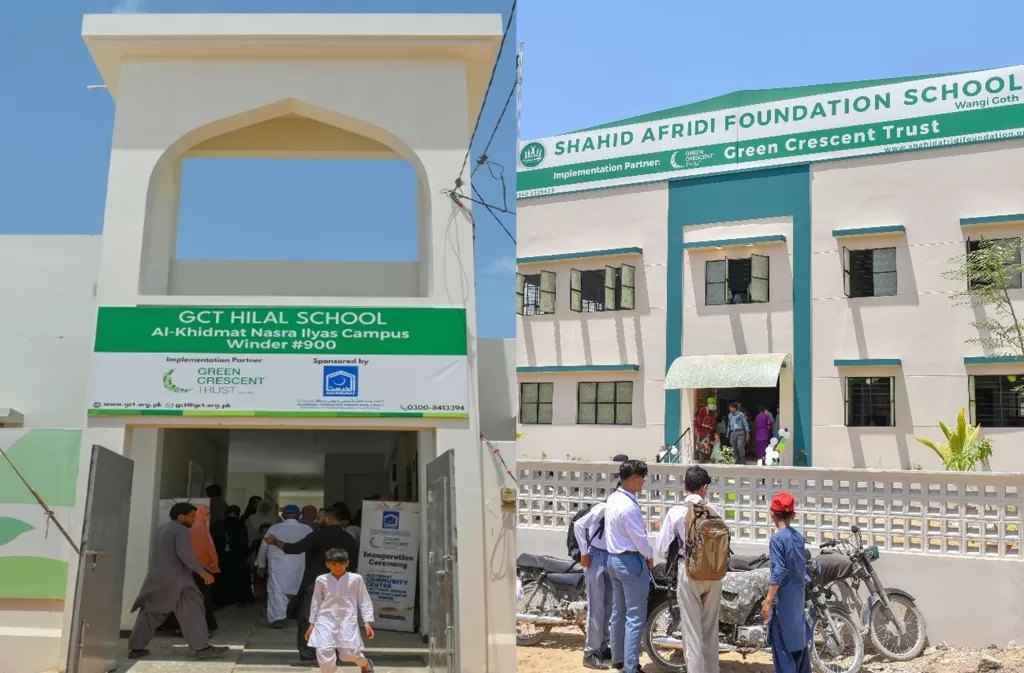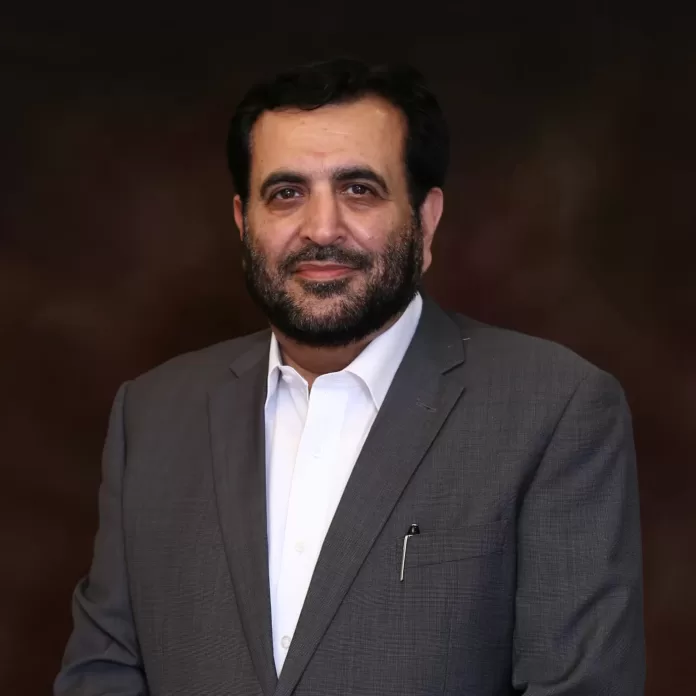Managing Director and CEO Indus Pharma, Zahid Saeed is an industrialist and politician associated with Jamaat-e-Islami (JI) Pakistan. The Federal Government conferred on him the coveted civil award of Tamgha-e-Imtiaz in 2023 in the field of social service and philanthropy for his 29-year-long struggle to enrol outof-school children in Sindh. Elected Union Councilor for Union Council-7 in Jamshed Town – Karachi twice, he worked to fight the land mafia to clear them from the parks illegally occupied in this area. He served as the Chairman of the “Pharma Body” of the Federation of Pakistan Chambers of Commerce & Industry for the year 2017 and was appointed a Governing Body Member of Sindh Employees Social Security Institution (SESSI) in July 2017. He has also served as the President of Korangi Association of Trade and Industry (KATI). The Green Crescent Trust (GCT) was the brainchild of Mr. Zahid Saeed, he established the first school in Gadap area of Karachi in 1995 and is now its CEO. The Trust has established a network of 166 schools across Karachi and Sindh. Of the 32,000 poor students in the schools, over 14,500 are females. The institution has also arranged drinking water supply in 200 villages of Pakistan. Families of some 2,000 orphan students studying at the GCT’s schools are recipients of a “Special Assistance” drive. To support the educational program he established the Center for Educational Research and Development (CERD), a ‘teach the teachers’ training project, which has trained over 13,000 teachers in its 23 years of operations.
Compared to wealthier developed nations such as Canada (1.2% GDP) and the United Kingdom (1.3% GDP to charity). Pakistan contributes 1% of its GDP to charity. With its fastest-growing economy, India contributes half of what Pakistan donates relative to GDP. The Pakistan Centre for Philanthropy surveyed charity amount, motivation, and factors contributing to high charity inclination and found that Pakistanis donate more than $2 billion (PKR 240 billion) annually. Pakistanis are generous when it comes to helping the underserved people. In 2022, it was reported that corporate donations were PKR 16.74 Billion. It was also indicated that about 98% of people of Pakistan participate in charity in one form or another, mostly in cash donations, then in-kind donations, and many volunteers for needy causes.
Almost 90% of the charity is motivated by religion, this includes Muslims, Hindus, Sikhs, Christians, and other religious communities. Despite their differences, this collective effort enhances a culture of giving in Pakistan a common thread of philanthropy unity all these diverse groups and making it one of the most charitable regions in the world. Most people prefer to donate cash to individuals, while fewer trust charitable organizations; a significant portion of donations for organizations goes to Mosques and Madrassahs. Muslims are deeply rooted in Islam’s emphasis on giving through Sadqa, Zakat, and Fitrana. This is a religious duty, and the amount varies depending on a person’s income and wealth.
Religious giving is influenced by the belief that monetary contributions are required for worship, supporting religious leaders, creating religious institutions, and going on pilgrimages. These contributions may not immediately contribute to the socio-economic advancement of society. It’s crucial to distinguish this with the religiously motivated which contributes to the socio-economic development of our society. Charitable donations must improve the lives of deprived people through informed decisions for social development. With most donations being made directly to individuals rather than through charitable organizations, channelling donations through organizations can have a more significant and sustained impact.

Sustainable development requires institutionaling the culture of individual giving and redirecting it towards structured efforts, is crucial for building a sustainable future. Mosques and madrassahs receive most organizational donations due to their established infrastructure for collecting small contributions through door-to-door campaigns and donation boxes. Despite limited or no accountability and transparency of charity funds, people trust these religious institutes which incidentally do not provide receipts to donors. While charitable organizations, with internal and external audits, ensure that donations are used effectively and transparently. Redirecting donations to reputable organizations like the Bunyad Foundation, “The Citizens Foundation“ (TCF), the Green Crescent Trust (GCT) etc can better utilize funds to improve the lives of the less privileged through education and skill development.
Changing the lives of poor people in social development by a government, businesses, and civil society must collaborate. The Pakistan Centre for Philanthropy aims to increase the volume and effectiveness of indigenous philanthropy for social development. Their survey found that 67% of respondents prefer giving charity to individuals, while only 33% prefer donating to organizations. The lack of trust in charitable organizations stems from the misconception that most NGOs are controlled by Western countries, along with fears of misuse, wastefulness, and lack of impact. To build trust and encourage donations to organizations, it is important to address these concerns. Proximity and reputation are key factors that influence people’s donation choices. By improving the transparency and accountability of charitable organizations, and educating the public on their impact, we can shift more donations towards these organizations and enhance their role in sustainable development.
The people in lower- and middle-income strata know needy individuals closely, they thus prefer helping individuals rather than giving donations to organizations. People with high incomes have direct relations with foundations and other charitable organizations and they prefer to donate to them. Balochistan has the highest ratio of charity to individuals (more people fall in low – and middle-income groups as compared to Punjab and KPK provinces). the higher the level of wealth, the more inclination toward giving to both individuals and organizations, still ratio of giving to individuals is higher throughout the country.
Social safety networks can be stimulate by creating an effective system to target more impact-oriented philanthropy, with more effective outcomes of individual donations and inclusive development. It will reduce poverty through empowering people using education/skill development and creating job opportunities. Providing free food is simply mitigating the symptoms of poverty. Religious giving is not always helpful in social development as it is limited to providing food, and no incentive to work to earn food. Dependency created by giving free meals is not sustainable in the long run. The real contribution is to enable a person to earn his/her meal.
The lack of trust in civil society organizations is hindering their fundraising efforts. To encourage more institutional giving, organizations need to prioritize transparency and accountability to bridge the trust gap. While civil society organizations should expand their fundraising efforts among the general public, they should also communicate that donating to organizations can have a larger impact than giving to individuals. Pakistan can transform its social structure by improvising a better and more efficient system of distribution of charity funds.
IKRAM SEHGAL




